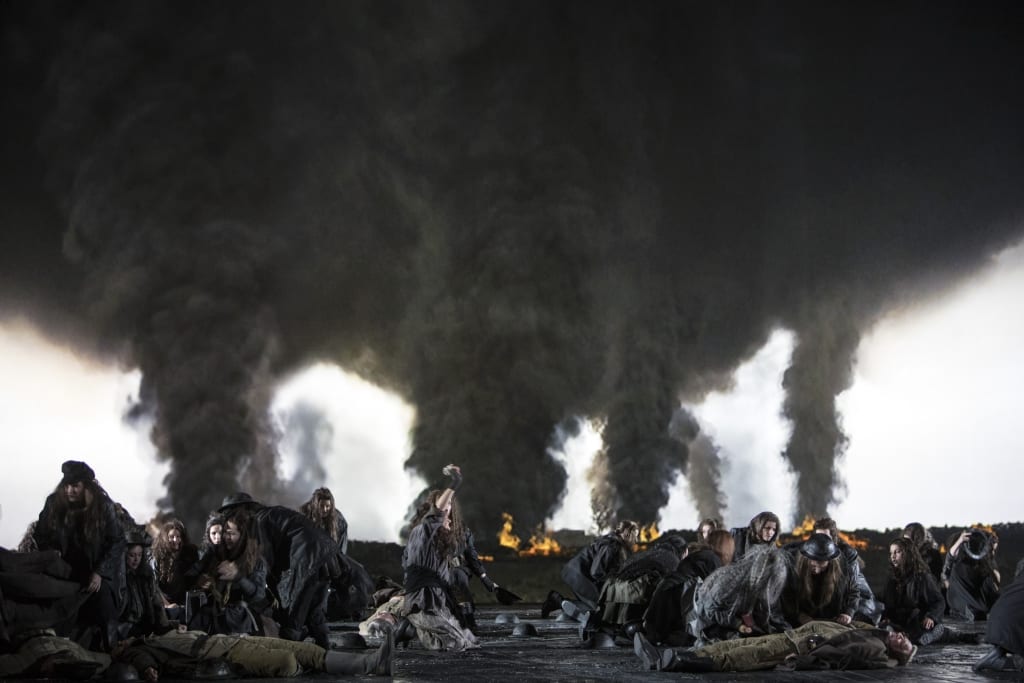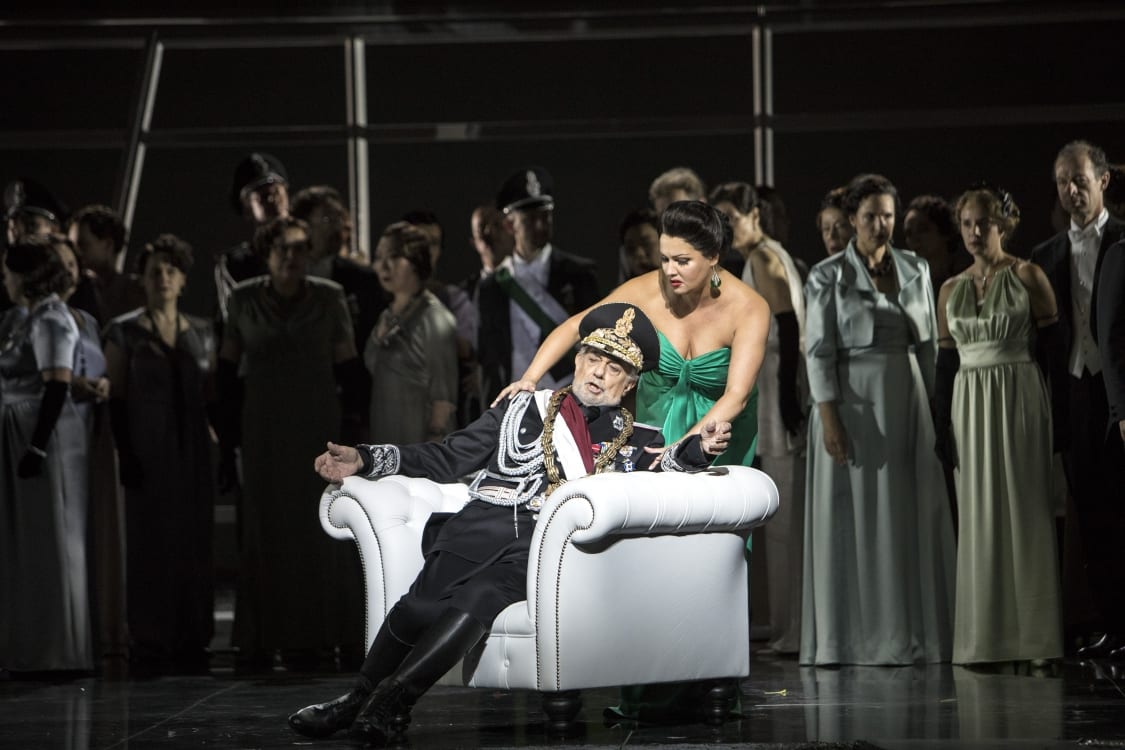Harry Kupfer’s new production of Macbeth at Berlin’s Staatsoper opens with a digital backdrop of a smoking landscape unsettled by occasional explosions. The witches, a band of scruffy scavengers, move hungrily onstage amongst fallen soldiers. Such an image of the chaos of war contrasts sharply and effectively with the Macbeths’ sleek environment evoking early 20th-Century dictatorships through Hans Schavernoch’s sets and Yan Tax’s costumes, evocatively framed by Thomas Reimer’s stylish projections of ancient castles. For the most part, however, it is the superstar cast headed by Anna Netrebko and Plácido Domingo fueling excitement for this production, one scarcely dented by World Cup fever. A packed audience viewed opening night’s outdoor broadcast, and the energy inside the house at the second performance, reviewed here, remained intense.
With scarcely any colour or more than a single piece of furniture on stage at any one time, the Macbeth abode is anything but a home. Netrebko makes a stunning entrance lying on a white sofa set on a bare industrial platform, which rises up from below thanks to the Staatsoper’s recently updated stage technology. With animalistic restlessness, she makes use of the sofa and other furniture as platforms, maybe too much, but given that she pulls it off, why not? Presented as a style maven of the highest order, and symbolically introduced wearing pants, Netrebko often unleashes her tremendous vocal power. Yet she also exquisitely controls more nuanced expressions, especially in her earthy lower range, to convey duplicitous and contemptuous sides of Lady Macbeth’s personality. Netrebko’s sleep-walking scene impressively exceeds the spectrum of anticipated vocal colours, and like Macbeth earlier (after he has killed Duncan), she is blood-free, their dictatorial art one of determined separation from ugly reality.
Broad metal gates seal off the Macbeth home from regular society, implying paranoia as well as exclusion. Duncan’s military banda comes onstage to fill its width, well beyond the gate and appearing just a hint ridiculous, questioning the meaning of their regal duty and Duncan’s authority in turn. In this context, Domingo’s puppet-like role is accentuated, although his vocal heft, stage stature, and stamina lend welcome richness to his character.

If the supernatural dimension of the witches is here downplayed, we may understand Macbeth as plagued by the perils of civil unrest when his wife pressures him to take action himself. While a few of Kupfer’s directorial touches are a bit bland (such as Banquo’s murder at a construction site), it was a clever idea to have three female nurses instead of men accompany a drunken Macbeth at the top of Act III, leading into his (mental) encounter with the witches. Stretches of Verdi’s score, including much of the music for the witches, can strike modern ears as less than serious in tone, to dramatic disadvantage. Kupfer’s handling of this scene—working with the music—prompts an association with the three ladies in Mozart’s Die Zauberflöte when they tend to the ailing Tamino.
Barenboim holds potentially frivolous-sounding dimensions of Verdi’s score tightly in check. The Staatskapelle Berlin offers a probing and careful interpretation, sculpting stern responses to murderous deeds as if casting heavy judgment. Sustained and energetic appreciation from the audience placed the orchestra on the level of the leading principals. The chorus and Fabio Sartori’s robust Macduff also garnered an especially strong positive response. They launch Act IV on a thought-provoking note as modern refugees, rooted in a sombre, relentless orchestral dirge. Rounding out the strong cast are Kwangchul Youn’s vibrant Banquo, while Evelyn Novak as the lady-in-waiting captures attention as a voice one looks forward to hearing in larger roles.

